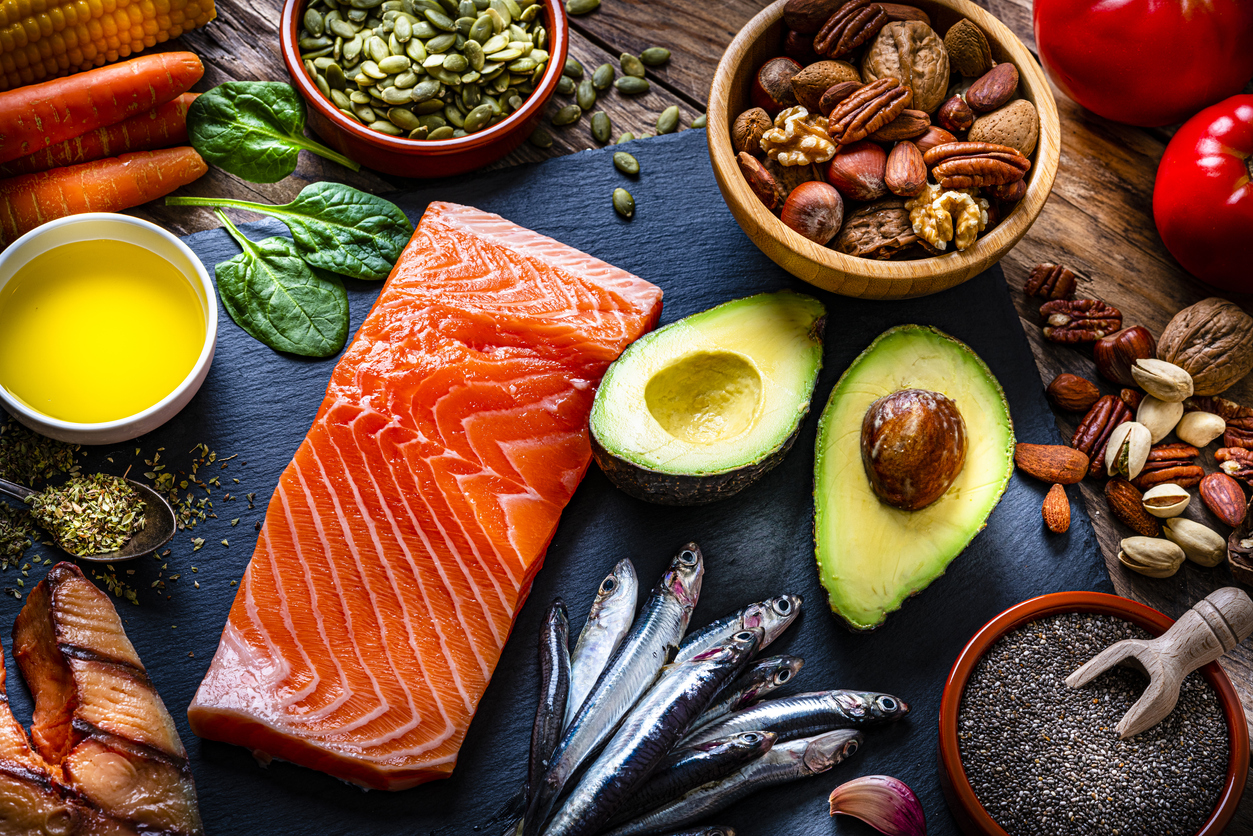Many people dealing with chronic pain know its root cause, be it an injury, an age-related illness, or a product of chronic, systemic inflammation left untreated. However, with or without knowing the key culprit, there’s still so much you can do to help your body relieve the pain, especially with the help of nutrition.
The right approach to eating can do wonders for your immune health and resilience, but it can also reduce chronic inflammation that is often either the cause of chronic pain, or at the very least makes it worse. Here are a few golden rules of nutrition to help you manage and reduce pain and reinforce healthy habits!
Think long-term
Don’t get discouraged if you make diet changes but don’t feel improvements immediately. The main thing to remember is that any changes in your nutrition take time to be effective, and most of all, it takes consistency and long-term dedication.
Make a plan that you can stick to, and of course, seek advice from your doctor on the best ways to incorporate dietary changes. If you need pain medication, too, all the more reason to take a careful approach and regularly evaluate how you feel, to make sure you’re on the right track.
Focus on veggies and fruit
One of the greatest changes you can introduce to your diet that will make the most significant difference for your chronic pain and inflammation is focusing on vegetables. Of course, you need healthy protein sources, such as fish, lean meat, and various plant proteins, but vegetables are crucial in your fight against chronic pain.
A good amount of veggies on your plate help you control your levels of insulin and cholesterol, allow you plenty of energy throughout the day, help keep your gut healthy, and of course, prevent and reduce inflammation.
Take extra steps
Much like any other health issue, chronic pain deserves a holistic, functional approach that encompasses your nutrition, but also your complete lifestyle.
For starters, take your diet to the next level with a nutritional supplement such as SPM Active, which contains a form of anti-inflammatory omega-3 fatty acids called specialized pro-resolving mediators (SPMs). When it’s difficult to consume enough of these nutrients through your diet, adding it to your menu in this way can help your body stay healthy and resilient.
Add to that, make sure that you are exercising regularly and that you have a good sleeping routine. To reinforce your diet even more, you need to prime your body against inflammation with optimal amounts of physical activity as well as rest.
Rely on healthy fats
Monounsaturated fats as well as omega-3 fatty acids are excellent nutrition boosters that help your body reduce inflammation.
To avoid consuming unhealthy fats that will affect your overall and especially your cardiovascular health, you should steer clear of fried foods and aim for cold-pressed virgin olive oil, fatty fish like salmon rich in omega-3s, as well as walnuts and other plants that are loaded with healthy fats.
If you’d like to use fasting as a way to manage your chronic illness, enriching your diet with healthy fats will also help you feel full for longer and manage those cravings better.
Spice things up
Adding variety into your daily menu can be both delicious and anti-inflammatory, especially if you know which spices to turn to, such as turmeric, ginger, cinnamon, and garlic, among many others. Even in small quantities, spices can elevate the flavor of your meals and have a positive impact on your wellbeing.
These anti-inflammatory spices are a brilliant way to enrich your dishes and make sure that you stick to your healthy eating plan, while at the same time providing your body another tasty way to ward off inflammation.
Although there is no quick fix for chronic pain, especially if you’ve been dealing with it for a long time, you can always adapt your nutrition to help you improve your quality of life – which ultimately means less pain and less pain medication. For any added help and guidance, feel free to book a consultation with our functional medicine experts and find the most effective way to battle chronic pain for the long haul.







